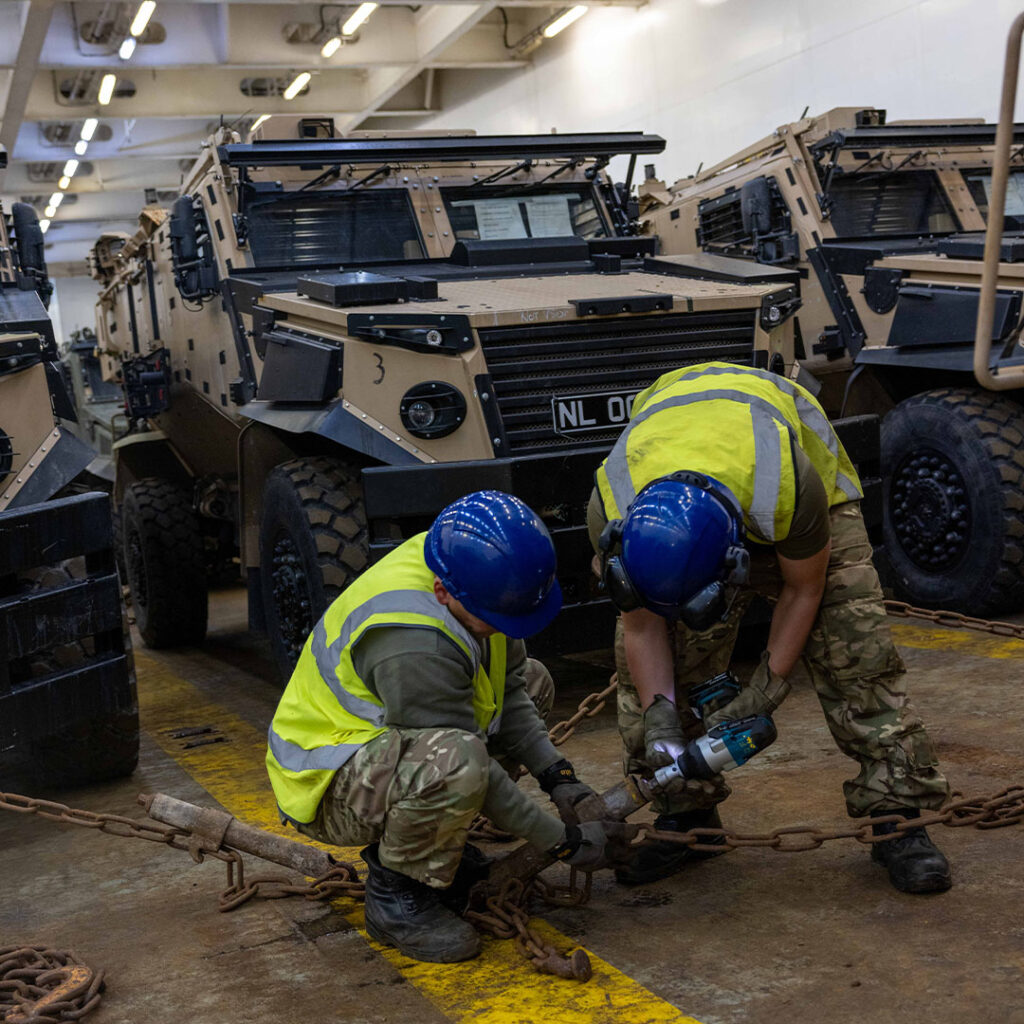Supportability Engineering
We provide domain leading Supportability knowledge, skills and experience enabling our customers to make more timely and informed evidence based decisions based on sound knowledge of MOD Assurance principles and standards.
Our services include supply chain management, support assurance to MoD mandated standards and Integrated Logistic Support(ILS) documentation and standards. Our services are delivered in accordance with Industry and Government best practice, including: DefStan 00-600, ASD Series, DLF, KiD.

Services
- Facilitating efficient purchase, repair and disposal decision making.
- Cross domain support: Support to MOD operational Supply Chain in the Maritime, Land and Air domains.
- Selection support: Develop, support and implement best practice Supply Chain Solutions and Supplier selections, ensuring value for money and increased availability.
- Inventory Management Optimisation.
- Through life management: including purchasing, repair, and disposal decisions.
- Warehouse Management
- Maintaining evidence in accordance with standards: Generate, manage, and maintain an SSDT2 utilising evidence and demonstrable knowledge of Support Solutions Envelope (SSE)21.
- Planning for risks and exceptions: Develop, implement, manage, and maintain a plan to reduce risks and issues found within a support solution report.
- Development, implementation, management, and maintenance of ILS documentation required during the Concept, Assessment, Demonstration and Manufacture phases of the CADMID cycle including:
- ILS Strategy
- ILS Plan
- ILS Statement of Work
- Initial Supportability Case
- ILS Work Breakdown Structure
- Supply Support Plan
- Maintenance Planning / Maintenance Task Analysis
- Support and Test Equipment
- Obsolescence Management
- Facilities and Infrastructure
- Technical Documentation Management / Technical Authoring
- Packaging, Handling, Storage & Transportation
- Availability, Reliability and Maintainability
- Disposal and Termination
- Supportability Analysis
- Logistic Information Management / IKM
Why TP Group?
- More than 30 years' experience in the Defence sector
- Dedicated supportability team with specialists and experts
- Adhering to MoD standards and concepts throughout
- Straightforward to engage through multiple frameworks
- Independent consultancy not affiliated to any software or technology
Our work in Supportability Engineering
TP Group is a key part of the team which has won the Ministry of Defence (MOD) CSS contract. This contract is part of the MOD’s upgrade of its military satellite system, SKYNET, which will provide secure, long-range communications to the armed forces and UK allies.
TP Group consultants developed a single-source-of-truth model to capture and maintain a complex system design including hardware, software and firmware for two combat systems on behalf of a UK Major Prime, compliant with their Life Cycle Management approach.
TP Group were tasked with assessing the Initial Support Solution and producing a set of ILS artefacts.
TP Group was tasked to provide an independent review through the lens of Assurance, aligned to the requirements of DefStan 00-600 and those of SSE21.
Creation of a Disposal Plan (DP), and Supply Support Plan (SSP) for the department’s portfolio of rotary airframes.
